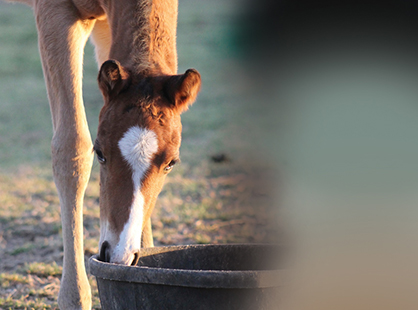Just Because it’s Winter, Don’t Forget to Water!
 Winter or Spring – Water Your Horse
Winter or Spring – Water Your Horse
Making sure your horse has an adequate supply of water during winter and early spring is important in ensuring good health.
by: David Stroud, Michigan State University Extension
Doing horse feeding chores during these prolonged cold spells is difficult, especially for providing water. Frozen water pipes or frozen water sources are a serious health issue to the horse. Horses will drink 8 to 12 gallons of water per day during cold weather; intake decreases as the temperatures declines and will increase if there is access to warm water. Studies have shown that offering warm water (45-65 F) will increase intake by 40% during winter.
A horse may “get by” if it is forced to eat snow for hydration, but using calories to melt the snow rather than to maintain body warmth is counterproductive. More hay is better than more grain. The digestive process produces more calories by eating more hay than eating more grain. A general rule is to increase hay fed to the horse by 25% in winter. Reduced intake of water along with increased intake of forage will lead to a higher risk of colic or compaction.
If your horse has been “getting by” from eating snow for water then take note that changes are necessary as spring begins. First is the lack of new snow; if frozen banks are all that is left, it is much more difficult for the horse. Some days will be warm enough for pools of water to be available to drink, but will remain frozen on days below freezing (32 F). The desirable situation is to install, and maintain, a frost-free hydrant or heated water dispensing device, so that water is available year-round in a situation that offers adequate quantity with minimum effort, for a healthy horse.
This article was published by Michigan State University Extension. For more information, visit http://www.msue.msu.edu. To have a digest of information delivered straight to your email inbox, visit http://www.msue.msu.edu/newsletters. To contact an expert in your area, visit http://expert.msue.msu.edu, or call 888-MSUE4MI (888-678-3464).










